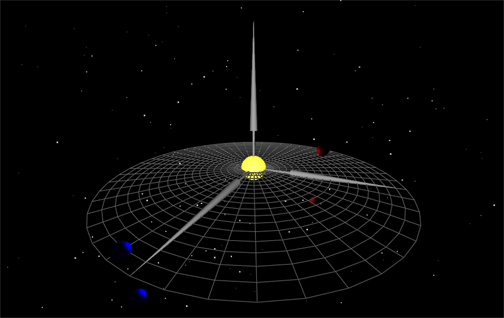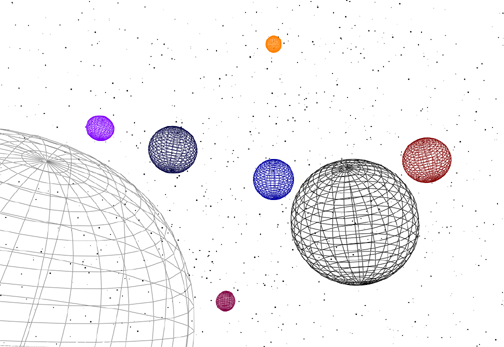
Elastic and Inelastic

The
next 2 systems demonstrate one of the fun features of Gravitation3D Ė
collisions. This system
demonstrates elastic collisions (collisions that conserve kinetic energy).
These can be likened to billiard ball collisions.
The next system demonstrates inelastic collisions, which donít conserve
kinetic energy and can be likened to collisions of silly putty.
This first system is quite unstable, the sets of planets making only a
few orbits before chaos sets in.
Special
Features Demonstrated:
Elastic
collisions
Changing
the Field of View
Star
controls

This
is the inelastic system. After two
planets collide, they stick together, becoming one larger planet with the
combined properties of each (mass, volume, center of mass, color).
Though kinetic energy is not conserved when a collision occurs, momentum
is conserved. Note that no planets
in this system were given any initial velocities.
So the net momentum of the starting system is 0.
After all the collisions, you can see that momentum was conserved since
the final large planet does not move. This
final mega planet has the total mass and volume of the original system and lies
at the center of mass of the original system.
Special
Features Demonstrated:
Inelastic
collisions
Reversing
the background color
Wireframe
mode
Ambient
lighting control